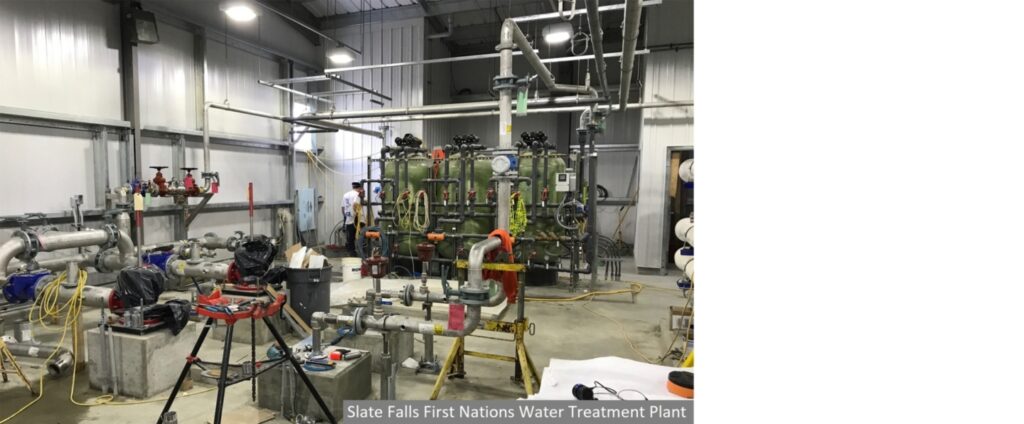A few years ago, Indigenous Services Canada (ISC) introduced operational business planning as part of its standard bid response requirements for water treatment plant projects. Although costs to develop the plan are funded by ISC, the addition of this requirement has created confusion. For some applicants, unfamiliarity with operational business plans and the benefits have made responding to bid packages difficult.
Below, we’ll walk you through what you need to know about operational business plans so you can confidently respond to this requirement on your next proposal.
What is an Operational Business Plan?
An operational business plan describes the role specific teams or departments will play in the operation of a new capital project. The plan typically includes a detailed budget and outlines all the tasks required to operate and maintain a facility – in this case, a water treatment plant – as well as what’s required to achieve longer-term operational goals.
A well-constructed plan addresses the classic Five W questions:
- Who are the individuals, teams or departments responsible for completing each task or implementing each strategy?
- What tasks and strategies are required to maintain operations?
- When should each task or strategy be completed?
- Where does each task happen within the plant?
- Why is each task or strategy important to the overall project purpose and/or goal?
- How are the financial resources budgeted to complete a strategy/task?
To run a water treatment plant efficiently, employees need to be trained on how to perform each assigned task. An operational business plan breaks down both the routine and preventative maintenance tasks (the what) required throughout the plant (the where) into departmental and employee functions (the who).
The plan then details the purpose of the task (the why). In this scenario, training on how to operate a plant should include the proper use and maintenance of equipment, while also educating employees about the safety precautions and risks associated with each task. The plan should also include a complete training schedule (the when) specifying how often training should be administered and confirm the budget allocated to provide it (the how).
Business Plan Benefits
Developing a detailed plan and budget takes time, but provides multiple benefits to Indigenous communities taking on important water treatment projects. These projects have major impacts on the communities they serve and can be costly if not properly planned or maintained. Operational business plans can benefit Indigenous communities by:
- Helping to identify and rectify the shortfalls in ISC funding
After completing your operational business plan, you may find that the financial resources needed to properly run the new treatment plant are higher than the formula-based funding determined by ISC. You can leverage that detailed analysis to advocate for a higher amount of ISC funding, leaving your community better equipped to operate and maintain the plant without disruption. In addition, as part of the plan development, you may find that it makes sense to adjust your original plant design to include things like value engineering or energy efficient solutions, which will help keep your project on budget while meeting operational performance goals. By providing accurate, well-researched documentation detailing your operation and maintenance costs, ISC will be better equipped to provide funding. - Incorporating skills transfer to strengthen the local workforce
Including items that support the ongoing operation of your water treatment plant is critical to project success. For example, ensuring plant operators have access to ongoing training and that your budget accounts for preventative maintenance are important inclusions – especially in small, remote communities where access to materials and additional skilled resources may be limited. Ensuring that ongoing training for locally sourced operators is part of your operational business plan will enable your community to manage and sustain your plant independently. It will also create jobs and strengthen the skilled workforce in your region. - Including tasks to monitor public health
Today, many Indigenous communities still face challenges with water contamination and/or sustainable water sources. The main goal in developing water treatment plants in these communities is to provide the community with safe, clean water. With the health and safety of the community a priority, budgets for routine water testing kits, standard chemical treatment, and water safety monitoring should be incorporated into your operational business plan to ensure that water quality is regularly maintained, and public health concerns are mitigated.
Developing Your Operational Business Plan
If you are currently partnering with ISC or plan to seek funding from ISC, it’s best to complete your operational business plan early in the design phase. This enables you to include the plan within your project approval documents when submitting your ISC funding application.
The more detail you include for each task documented in your plan, the easier it will be to meet the objectives you’ve set for your new water treatment plant. Every project experience provides a roster of lessons learned. Gathering these lessons from experienced project management consultants and/or other communities allows you to incorporate that knowledge into your plan, which further strengthens your ISC funding application.







